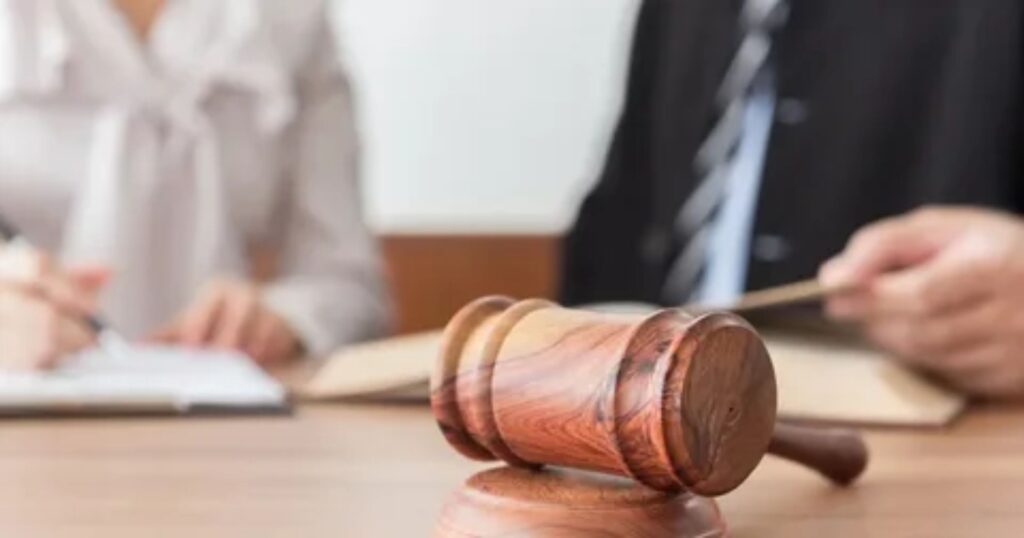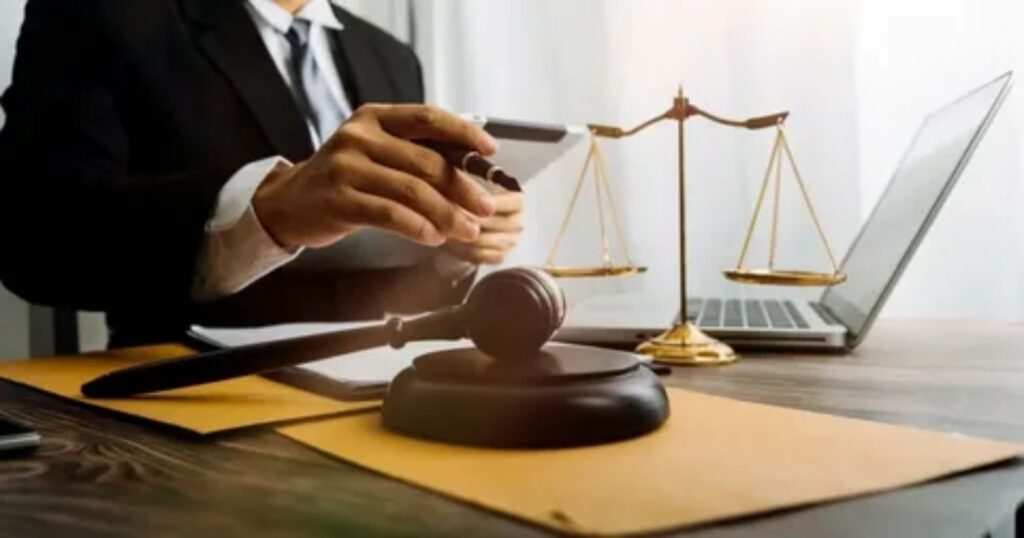A personal injury lawyer is a legal professional who provides image to those who claim to have been injured physically as a result of the neglect of another person and company. They play a critical role in the legal system by supporting for the rights of the injured and seeking reward for their losses.
Personal injury law covers a wide range of cases including car accidents medical malpractice slip and fall incidents and workplace injuries. The primary goal of a personal injury lawyer is to ensure their clients receive fair compensation for their injuries and related expenses. Another essential function of personal injury lawyers is providing legal advice. Throughout the case clients may have many questions.
Their primary role is to advocate for the rights of the injured party. They ensure that victims receive the compensation they deserve. Personal injury lawyers handle a wide range of cases. These may include car accidents, slip and fall incidents, medical malpractice, and product liability claims. They may offer settlements that are far less than what victims need.
Initial Consultation And Case Evaluation
The process typically begins with an initial consultation. During this meeting, the personal injury lawyer will listen to the client’s account of the incident, assess the potential case, and provide legal advice. This consultation is often free of charge. This clarity is crucial for helping clients understand what to expect. If the case has merit, the lawyer will proceed with further legal action.
The lawyer will evaluate the merits of the case by considering factors such as the severity of the injury the clarity of liability and the potential for collecting damages. They will also discuss the legal process, potential outcomes, and the timeline of the case with the client. If both parties agree to proceed, the lawyer will begin a formal investigation.
Investigating Claims And Gathering Evidence
A thorough investigation is crucial for building a strong case. Personal injury lawyers gather evidence by reviewing medical records, police reports, and witness statements. They may visit the accident scene, take photographs, and collect physical evidence. Evidence collection is a critical aspect of a personal injury lawyer’s role. They gather all relevant documentation to support the client’s claim.
In some cases they hire experts such as accident reconstruction specialists, medical professionals, and forensic scientists to support the claim. This phase is essential for establishing the facts and proving liability. The lawyer’s ability to gather and present compelling evidence can significantly impact the outcome of the case.
Legal Strategy And Negotiations
Once the investigation is complete, the personal injury lawyer will develop a legal strategy tailored to the client’s situation. This involves determining the most effective way to present the case, or litigation. The lawyer will communicate with the opposing party’s insurance company to negotiate a settlement. This process can be complex and requires a deep understanding of insurance law and tactics.
- The personal injury lawyer develops a clear legal strategy to win cases for their clients.
- It involves gathering evidence, interviewing witnesses, and reviewing medical records.
- The lawyer negotiates with insurance companies to get fair compensation for their clients.
- It helps to understand the client’s needs and goals during the negotiation process.
- The lawyer prepares for trial in case negotiations do not lead to a good settlement.
- It is important for the lawyer to stay focused and calm throughout the legal process.
Filing A Lawsuit And Pretrial Preparation

If negotiations fail the personal injury lawyer will file a lawsuit on behalf of the client. This involves preparing and submitting legal documents to the court, outlining the client’s claims and the compensation sought. The pretrial phase includes discovery where both parties exchange information and evidence. Once the evidence is compiled the next step is negotiating with insurance companies. Insurance companies often try to minimize payouts.
The lawyer will depose witnesses gather additional evidence and refine the legal arguments. This stage requires meticulous preparation to ensure a strong case is presented at trial. The lawyer will also prepare the client for court proceedings, explaining what to expect and how to respond during testimony. They also may seek expert opinions to strengthen the case. For instance, a medical expert can provide insight into the extent of injuries.
Representing Clients in Court
When a case goes to trial the personal injury, lawyer represents the client in court. This involves presenting evidence, cross-examining witnesses, and making legal arguments to the judge and jury. The lawyer’s courtroom skills are crucial in persuading the jury to rule in favor of the client.
They must clearly articulate the extent of the client’s injuries, the impact on their life, and the negligence of the defendant. A successful trial outcome can result in significant compensation for the client. However, trials can be lengthy and unpredictable, requiring the lawyer to be adaptable and resilient.
Handling Contingency Fees
Personal injury lawyers often work on a contingency fee basis, meaning they only get paid if the client wins the case. This arrangement allows individuals to access legal representation without upfront costs. The lawyer’s fee is typically a percentage of the compensation awarded. This incentivizes the lawyer to work diligently on the client’s behalf.
Contingency fees also align the lawyer’s interests with the clients, as both parties benefit from a successful outcome. The lawyer will explain the fee structure during the initial consultation ensuring the client understands the financial aspects of the case.
Providing Emotional Support
Dealing with an injury can be a shocking and stressful experience. Personal injury lawyers provide more than just legal representation they offer emotional support and guidance throughout the process. They understand the challenges their clients face and strive to alleviate some of the burden. The lawyer-client relationship is built on trust and sympathy help clients to focus on their recovery.
- The lawyer listens to clients’ feelings and concerns.
- It helps clients feel understood during tough times.
- The lawyer offers reassurance throughout the legal process.
- It encourages clients to express their emotions openly.
- The lawyer provides guidance to cope with stress.
- It shows clients they are not alone in their struggles.
Advocating For Clients’ Rights

Personal injury lawyers are dedicated advocates for their clients’ rights. They ensure that clients are treated fairly by insurance companies’ employers and other parties involved in the case. This involves challenging unfair practices such as lowball settlement offers or delays in processing claims. The lawyer will fight to secure the maximum compensation available under the law.
The lawyer also ensuring the client receives the resources needed for medical treatment, rehabilitation, and financial stability. Advocacy extends beyond individual cases as personal injury lawyers also work to improve safety standards and regulations through legal precedents.
Specializing In Various Types Of Cases
Personal injury law encompasses a wide range of case types. Some lawyers specialize in specific areas, such as car accidents, medical malpractice, or workplace injuries. Specialization allows lawyers to develop deep expertise and provide high-quality representation. For example, a lawyer who focuses on medical malpractice will have extensive knowledge of medical procedures standards of care and healthcare regulations.
This specialization enables them to effectively challenge medical professionals and institutions. Clients benefit from the lawyer’s targeted experience and ability to navigate complex legal and technical issues.
Negotiating Medical Bills And Liens
In addition to seeking compensation, personal injury lawyers often negotiate with healthcare providers to reduce medical bills and liens. Medical expenses can be a significant burden for injured persons especially if they are unable to work. The lawyer will work to ensure that medical costs do not consume the entire settlement or judgment.
This involves negotiating with hospitals, doctors, and insurance companies to lower charges and delay payment until the case is resolved. By managing medical bills the lawyer helps clients maximize their financial recovery and reduce stress during their recovery period.
Coordinating with Insurance Companies
Insurance companies play a central role in personal injury cases. Personal injury lawyers coordinate with insurers to file claims, provide necessary documentation, and negotiate settlements. Insurance adjusters may attempt to minimize payouts or deny claims, making the lawyer’s role crucial in protecting the client’s interests.
The lawyer will handle communications with the insurance company, ensuring that all interactions are documented and professional. They will also advise clients on how to deal with insurers, avoiding common pitfalls that could jeopardize the case. Effective coordination with insurance companies is key to securing fair compensation.
Ensuring Timely Filing Of Claims
One of the critical aspects of a personal injury lawyer’s job is ensuring that claims are filed within the statute of limitations. This is the legal timeframe within which a lawsuit must be filed. Missing this deadline can result in the loss of the right to seek compensation.
The Personal injury lawyers keep track of important dates and deadlines, ensuring that all necessary paperwork is submitted on time. They also manage the overall timeline of the case, coordinating with clients witnesses and experts to meet legal requirements. Timely filing is essential for preserving the client’s legal rights.
Addressing Client Concerns And Questions

Throughout the legal process, personal injury lawyers address their clients’ concerns and questions. Clear communication is vital for building trust and ensuring that clients are informed about their case’s progress. The lawyer will provide updates, explain legal terms and procedures, and offer advice on important decisions. They may provide educational resources about personal injury law.
This open line of communication helps clients feel more confident and involved in their case. By addressing concerns promptly and thoroughly the lawyer ensures that clients have a clear understanding of their legal situation and the steps being taken on their behalf. personal injury lawyers may collaborate with other professionals. They might work alongside medical experts, accident reconstruction specialists, and economists. These collaborations can enhance the strength of a case.
Frequently Asked Questions
What types of cases do personal injury lawyers handle?
Personal injury lawyers handle various cases, including car accidents, medical malpractice, slip and fall incidents, workplace injuries, product liability, and wrongful death.
How do personal injury lawyers charge for their services?
Most personal injury lawyers work on a contingency fee basis. This means they only get paid if they win the case. Their fee is typically a percentage of the compensation awarded to the client.
What should I bring to an initial consultation with a personal injury lawyer?
For an initial consultation it’s helpful to bring any relevant documents, such as medical records, police reports, witness and contact information. This information helps the lawyer assess the case and provide legal advice.
How long does a personal injury case typically take to resolve?
The duration of a personal injury case varies depending on factors such as the complexity of the case and the severity of the injuries. Some cases may settle within a few months while others can take several years to resolve.
Conclusion
Personal injury lawyers play a vital role in advocating for individuals who have suffered injuries due to the negligence or wrongdoing of others. They provide comprehensive legal representation from the initial consultation to the resolution of the case. By gathering evidence, negotiating with insurance companies, and representing clients in court personal injury lawyers work tirelessly to secure fair compensation for their clients.
Their expertise dedication, and support help clients navigate the legal system and focus on their recovery. The work of a personal injury lawyer is essential in ensuring justice and financial stability for injured individuals. Personal injury lawyers also help clients manage their expectations. While they strive for the best possible outcome they understand that not every case will result in a large settlement. They explain the factors that can influence the outcome.
